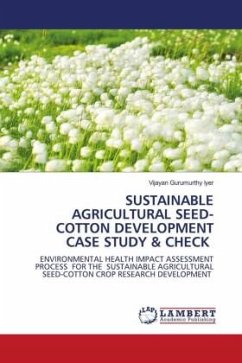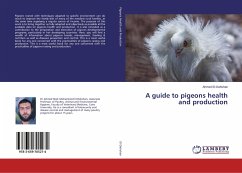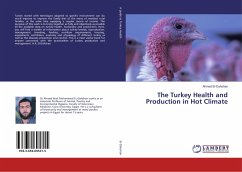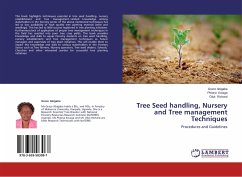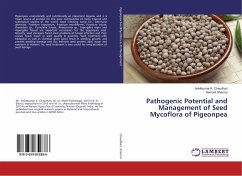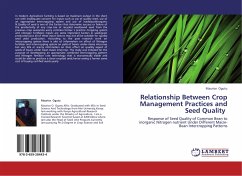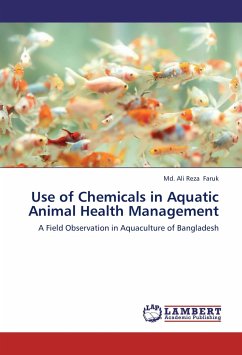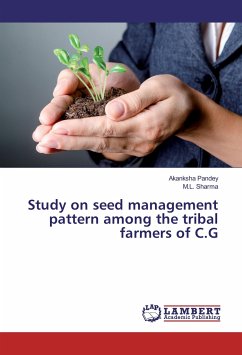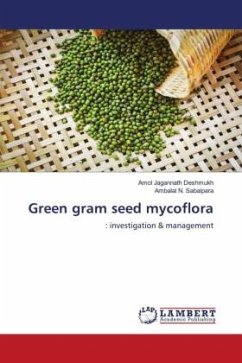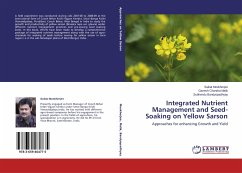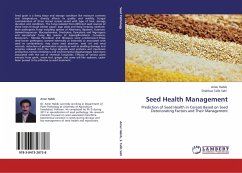
Seed Health Management
Prediction of Seed Health in Cereals Based on Seed Deteriorating Factors and Their Management
Versandkostenfrei!
Versandfertig in 6-10 Tagen
45,99 €
inkl. MwSt.

PAYBACK Punkte
23 °P sammeln!
Seed grain is a living tissue and storage condition like moisture contents and temperature, directly affects its quality and viability. Fungal contamination of three stored cereals varied with type of host, storage duration and conditions. The fungi isolated from different seed sources of three hosts through blotter paper, agar plate and deep freezing methods. Both pathogenic fungi including species of Alternaria, Bipolaris, Fusarium, Helminthosporium, Macrophomina, Drechslera, Pyricularia and Nigrospora and saprophytic fungi like species of Aspergillus,Mucor Curvularia, Epicoccum, Monilia, Pe...
Seed grain is a living tissue and storage condition like moisture contents and temperature, directly affects its quality and viability. Fungal contamination of three stored cereals varied with type of host, storage duration and conditions. The fungi isolated from different seed sources of three hosts through blotter paper, agar plate and deep freezing methods. Both pathogenic fungi including species of Alternaria, Bipolaris, Fusarium, Helminthosporium, Macrophomina, Drechslera, Pyricularia and Nigrospora and saprophytic fungi like species of Aspergillus,Mucor Curvularia, Epicoccum, Monilia, Penicillium and Rhizopus were predominant.These seed borne pathogens, present externally or internally or associated with seed as contaminants, may cause seed abortion, seed rot and seed necrosis, reduction of germination capacity as well as seedling damage and enzymes released from the fungi degrade seed proteins and mycotoxin production.Certain limitations and environmental disadvantages have been associated with the use of chemical fungicides. Efficacy of various plant extracts from garlic, neem leaf, ginger and some oils like soybean, caster bean proved to be effective as seed treatment.



